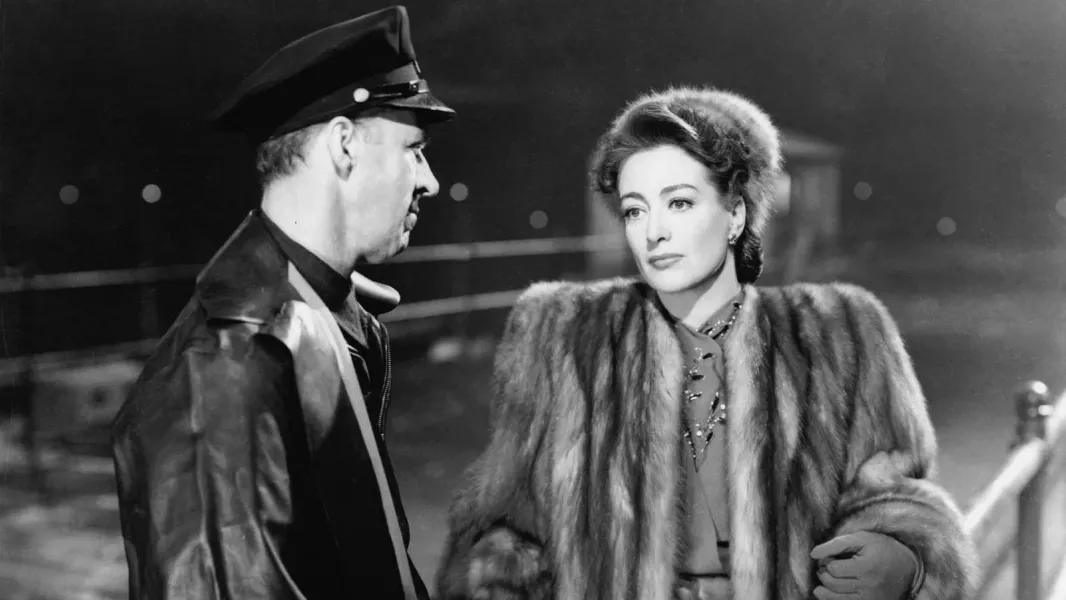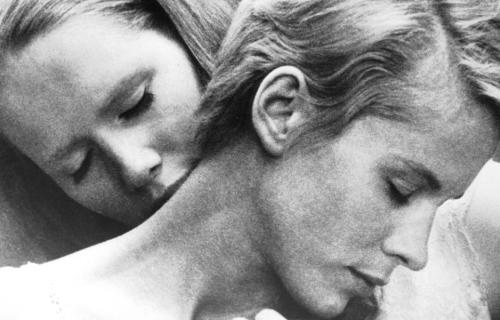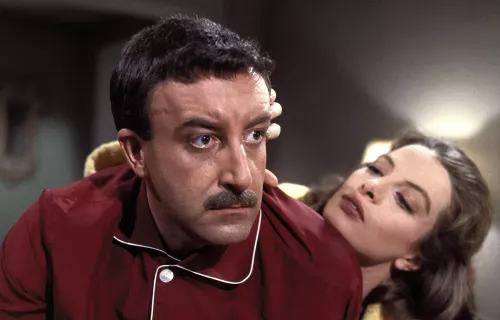
engllish below
“To Joan Crawford, who brought Mildred Pierce to life just as I had always hoped she would be, and who has my lifelong gratitude”. Met die inscriptie stuurde schrijver James M. Cain actrice Joan Crawford een gesigneerde eerste editie van zijn roman Mildred Pierce na het zien van de verfilming van zijn boek.
Hoewel Crawford jaren later door haar dochters beruchte autobiografische exposé Mommie Dearest als moeder in een slecht daglicht kwam te staan, belichaamde ze in MILDRED PIERCE het toonbeeld van de toegewijde moeder.
Wanneer Mildreds man haar verlaat voor een andere vrouw, blijft ze alleen achter met haar twee dochters, de 16-jarige verwende Veda en de 10-jarige tomboy Kay. Door haar harde werk en doorzettingsvermogen stampt ze een succesvolle restaurantketen uit de grond, maar zelfs dat financiële succes is niet genoeg voor de rancuneuze Veda, die bovenal een hoge sociale status wil veroveren voor zichzelf. Na de dood van haar tweede man, wordt Mildred gedwongen om de waarheid van de gecompliceerde relatie met haar dochter onder ogen te zien.
Crawford won een Oscar voor haar overtuigende performance en de film wordt gevierd voor zijn sterke vrouwenrollen, complexe dynamieken tussen vrouwelijke personages en voor die tijd hachelijke thema’s zoals moederlijke liefde en de keerzijde van sociale standing. Dat alles wordt afgewerkt met een stevige laag melodrama, prachtige zwart-wit cinematografie en een vertrouwde score. In zijn Guide for the Film Fanatic (1986) schreef Danny Peary “MILDRED PIERCE is essentially a film noir piece where it's a woman, Joan Crawford, rather than a man, who is led by a greedy, manipulative, evil femme fatale – in this case, the woman's daughter, Ann Blyth – down a fatalistic path full of deception, money for greedy people, murder, and doom.” Een perfecte match voor ons MOMMIE DEAREST-programma, waarin De Cinema peilt naar de kracht van moeders en onze perceptie van het ‘ideale’ moederschap in cinema.
ENG
The film is in English with Dutch subtitles
“To Joan Crawford, who brought Mildred Pierce to life just as I had always hoped she would be, and who has my lifelong gratitude”. With this inscription writer James M. Cain sent actress Joan Crawford a signed first edition of his novel Mildred Pierce, after watching the film adaptation of his book.
Even though Crawford was shown in a bad light as a mother years later after the publication of her daughter’s infamous autobiographical exposé Mommie Dearest, she embodied the paragon of the devoted mother in MILDRED PIERCE.
When her husband leaves her for another woman, Mildred is left on her own with her two daughters, the 16-year-old spoiled Veda and the 10-year-old tomboy Kay. Through her hard work and perseverance, she builds a successful restaurant chain from the ground up. But even this financial success is not enough for the resentful Veda, who above all wants to climb the social ladder, no matter the cost. After the death of her second husband, Mildred is forced to face the truth about her complicated relationship with her daughter.
Crawford won an Academy Award for her convincing performance and the movie is celebrated for its strong female leads, complex dynamics between female characters and for that time tricky themes such as maternal love and the downside of social standing. All of that is topped off with a solid layer of melodrama, beautiful black-and-white cinematography and a recognizable score. In his Guide for the Film Fanatic (1986) Danny Peary wrote “MILDRED PIERCE is essentially a film noir piece where it's a woman, Joan Crawford, rather than a man, who is led by a greedy, manipulative, evil femme fatale – in this case, the woman's daughter, Ann Blyth – down a fatalistic path full of deception, money for greedy people, murder, and doom.” A perfect fit for our MOMMIE DEAREST-programme, where De Cinema explores the power of mothers and our perception of the ‘ideal’ motherhood in cinema.



